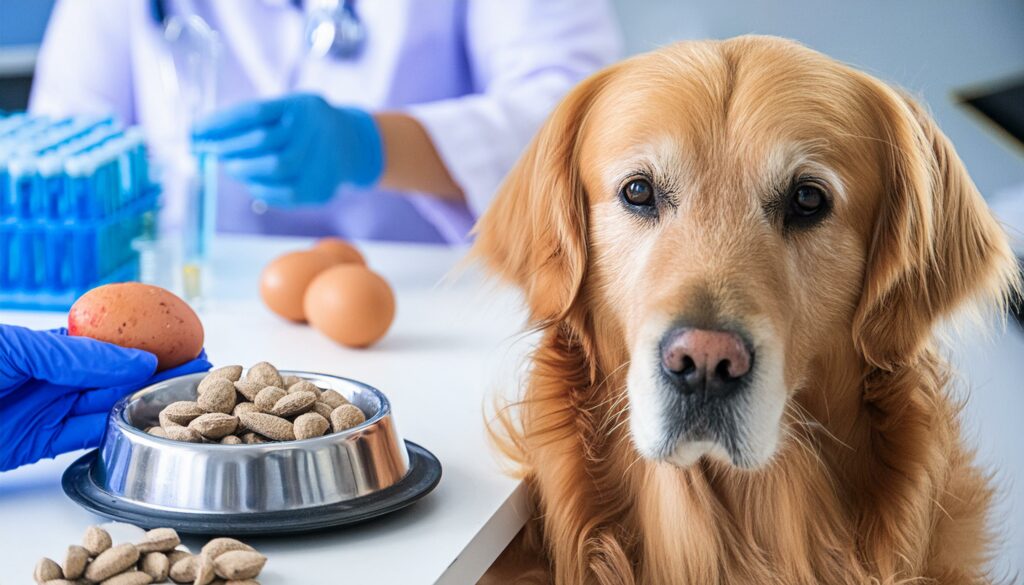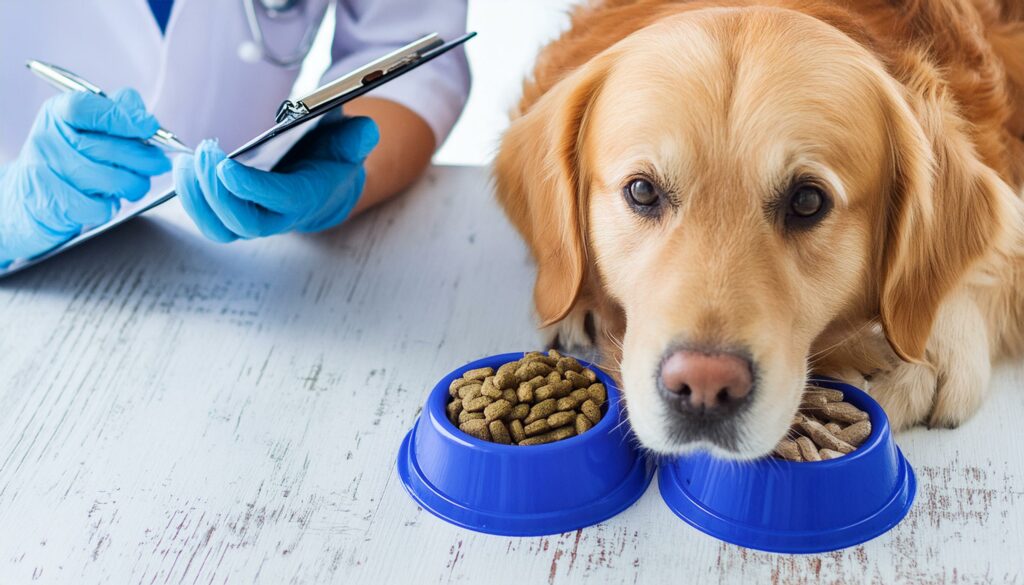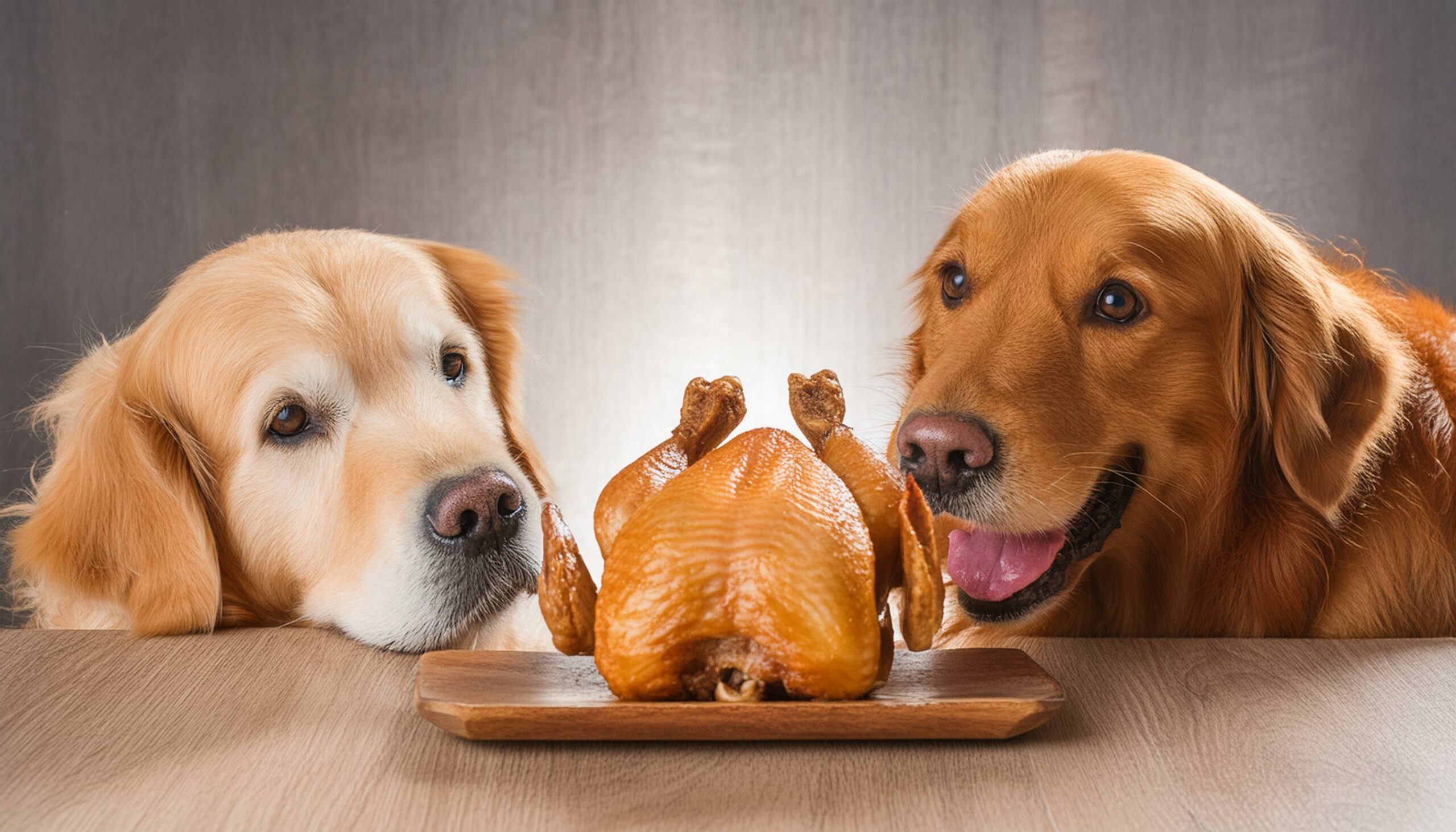Golden Retrievers are adored for their friendly nature and make wonderful companions for families. As responsible pet owners, ensuring their health and well-being through proper nutrition is paramount. One common query among pet owners is whether chicken is safe for Golden Retrievers. In this comprehensive guide, we will delve into this topic, exploring the nutritional benefits of chicken, potential risks associated with its consumption, and how to incorporate it into your Golden Retriever’s diet safely.
Can Golden Retrievers Eat Chicken?
Chicken is a widely available and popular protein source, not only in commercial dog foods but also in homemade diets. It is renowned for its rich protein content, essential nutrients, and palatability. However, while chicken can offer numerous health benefits to dogs, it is crucial to understand the potential risks involved in feeding it to Golden Retrievers.
Exploring the Nutritional Benefits of Chicken
Chicken is considered a high-quality protein source, containing essential amino acids necessary for muscle development, repair, and overall health in Golden Retrievers. Additionally, it is rich in vitamins B6 and B12, aiding in metabolism and neurological function, and minerals like zinc and selenium, which contribute to a strong immune system and healthy skin and coat.
Risks Associated with Feeding Chicken to Golden Retrievers
Despite its nutritional benefits, feeding chicken to Golden Retrievers can pose certain risks that pet owners should be aware of. One primary concern is the potential for allergies or sensitivities to chicken protein. Some dogs may exhibit allergic reactions, such as itching, skin irritation, digestive upset, or even respiratory issues, upon consuming chicken.
Another risk factor is the presence of bones in chicken meat. Cooked chicken bones can splinter and pose choking hazards or cause internal injuries, particularly in larger breeds like Golden Retrievers. Additionally, feeding chicken with skin or excess fat may contribute to obesity or increase the risk of pancreatitis, a painful inflammatory condition affecting the pancreas.
Potential Health Issues

Allergies and Sensitivities
Golden Retrievers, like other dog breeds, can develop allergies or sensitivities to specific food ingredients, including chicken. Signs of food allergies may manifest as itching, redness, skin infections, ear infections, or gastrointestinal disturbances. If you suspect your Golden Retriever is allergic to chicken, consult with your veterinarian for proper diagnosis and dietary management.
Digestive Problems
Some Golden Retrievers may experience digestive issues after consuming chicken, such as vomiting, diarrhea, or flatulence. These symptoms could indicate an intolerance to chicken protein or difficulty digesting certain components of the meat. It is essential to monitor your dog’s response to chicken and adjust their diet accordingly to alleviate discomfort.
Pancreatitis
Pancreatitis is a potentially serious condition characterized by inflammation of the pancreas. Feeding high-fat foods like chicken skin can predispose Golden Retrievers to pancreatitis, resulting in symptoms such as abdominal pain, vomiting, diarrhea, lethargy, and dehydration. To minimize the risk of pancreatitis, it is advisable to feed a balanced diet with moderate fat content and avoid fatty treats.
How to Safely Feed Chicken to Golden Retrievers

While there are risks associated with feeding chicken to Golden Retrievers, it can still be incorporated into their diet safely with proper precautions.
Preparation Methods
When feeding chicken to your Golden Retriever, opt for lean cuts of meat without bones, skin, or excess fat. Remove any visible fat or gristle before cooking, and avoid using seasonings, spices, or additives that may be harmful to dogs. Boiling or grilling chicken without added oils or marinades is preferable to retain its nutritional value.
Portion Control
Moderation is key when it comes to feeding chicken to Golden Retrievers. Offer chicken as part of a balanced diet, and ensure it does not constitute more than 10-15% of their total daily caloric intake. Overfeeding can lead to weight gain, nutritional imbalances, or other health issues over time. Consult with your veterinarian to determine the appropriate portion size for your dog based on their age, weight, activity level, and overall health status.
Monitoring for Adverse Reactions
Introduce chicken into your Golden Retriever’s diet gradually and observe their response closely. Watch for any signs of allergies, digestive upset, or other adverse reactions, such as lethargy or changes in behavior. If your dog exhibits any concerning symptoms, discontinue feeding chicken and consult with your veterinarian for further evaluation and guidance.
Alternatives to Chicken
If you are apprehensive about feeding chicken to your Golden Retriever or if they have specific dietary restrictions, there are plenty of alternative protein sources to consider. Options such as turkey, beef, fish, or lamb can provide similar nutritional benefits without the risk of allergies or sensitivities. Experiment with different protein sources to determine which ones suit your dog best and incorporate variety into their diet for optimal health.
Consulting with a Veterinarian
Before making any significant changes to your Golden Retriever’s diet, it is essential to seek professional advice from a veterinarian. A veterinarian can offer personalized recommendations tailored to your dog’s individual needs, including dietary preferences, allergies, medical conditions, and nutritional requirements. They can also conduct allergy testing or dietary trials to identify potential food sensitivities and help you formulate a well-balanced diet plan for your furry companion.
Conclusion
In conclusion, chicken can be a nutritious and flavorful addition to a Golden Retriever’s diet, but it is essential to feed it responsibly and with caution. Be mindful of potential risks such as allergies, digestive issues, and pancreatitis, and take proactive measures to mitigate them by selecting lean cuts of meat, practicing portion control, and monitoring your dog’s response closely. When in doubt, consult with your veterinarian for expert guidance and support in providing the best possible nutrition for your beloved Golden Retriever.
FAQs (Frequently Asked Questions)
Can Golden Retrievers eat chicken bones?
No, it is not safe to feed cooked chicken bones to Golden Retrievers as they can splinter and pose choking hazards or cause internal injuries.
How often can I feed chicken to my Golden Retriever?
Chicken can be offered as an occasional treat or as part of a balanced diet, but it should not exceed more than 10-15% of their total daily caloric intake.
What are the signs that my Golden Retriever is allergic to chicken?
Symptoms of chicken allergies in Golden Retrievers may include itching, redness, skin infections, ear infections, or gastrointestinal disturbances. Consult with your veterinarian if you suspect an allergy.
What are some alternative protein sources for Golden Retrievers?
Turkey, beef, fish, and lamb are all suitable alternatives to chicken for Golden Retrievers, providing similar nutritional benefits.
Should I cook chicken for my Golden Retriever or feed it raw?
It is generally recommended to cook chicken thoroughly to reduce the risk of foodborne illness in dogs.
